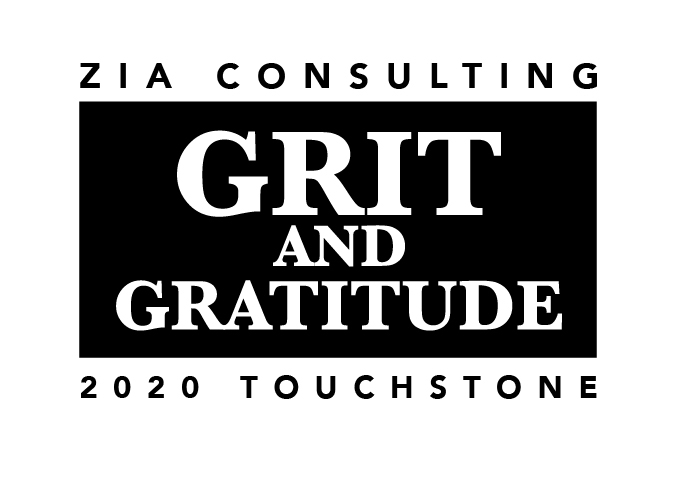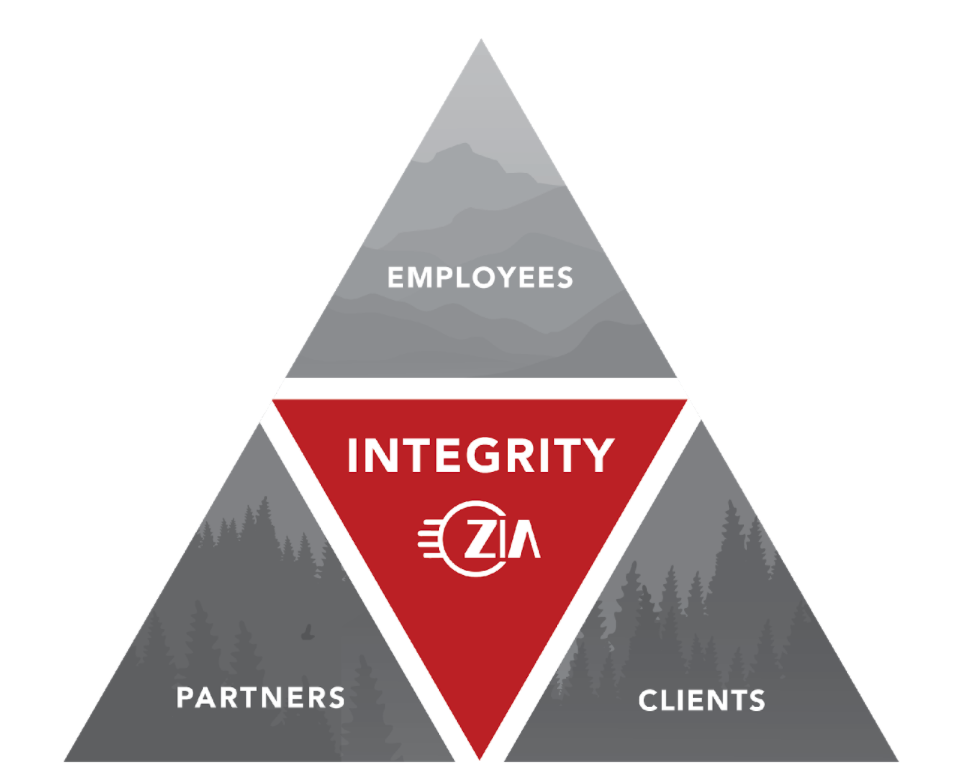The last year has been challenging and business leaders crave new perspectives to survive and thrive. Zia CEO, Mike Mahon, provides his perspective on what it takes to lead through uncertain times. He shares what he has learned from years of experience, constantly learning from authors and peers, and looking to the past to learn patterns. These five steps in this leader’s user manual are foundational to how he has led his company over the last year.
1. Lead from the Front
Leading from the front involves taking responsibility for creating a culture of deep care and connectedness across the company. This goes beyond work to supporting each other financially, emotionally, and through leadership. In uncertain times, people need more listening, communication, and facts than normal. Focus on being transparent and creating opportunities for ongoing communication, encouragement, and support. Especially in difficult times, remove as much of the uncertainty from people’s minds as possible by over communicating and citing curated, factual content from economists and leadership circles like Vistage. I delivered this type of curated content through Town Hall meetings every Friday at noon, during which all of our employees were invited to listen, engage, ask questions, and provide feedback to our leadership. The business environment changed forever last year and people were tasked to function in very different ways. Things can never be exactly the same as they were. Through deep caring and connectedness, everyone can be part of creating the way the organization operates moving forward.
2. Remember Your Roots

It is important to remember what made you successful in the first place. I have learned that in uncertain times it is necessary to lead from the front. But sometimes I have to remember to return to my trusted leadership style of leading from behind. A wolf pack is a group of wolves that travel, hunt, and stick together. We call our wolf pack the Zia family, which is made up of our employees, partners, and customers. You will notice something interesting when you look at how wolf packs operate. When walking together in a group, the old and sick wolves will walk in the front to ensure that they are not left behind. If the pack is attacked, they are sacrificed. The young and strong wolves are directly behind, protecting them if they are attacked. Following this group are the strongest wolves in the pack. Their role is to protect the back of the pack. Finally, at the very back of the pack is the leader. In an organization, it is not the leaders job to always be the loudest and most visible person in the organization. On the contrary, it is to hire the right people, identify what they are best at and enjoy doing, and give them opportunities to shine in a way that benefits the organization.
3. We Have to Learn Our Way Out of This
We have high expectations, while being flexible with our employees. We hire what we call wicked smart people at Zia. With that comes the expectation that they will work hard and get the right things done. This is true for both their work and personal life. It is their responsibility to make sure they are taking care of their health and loved ones, asking for what they need, and doing work that they both enjoy and contributes to the business. With that comes flexibility and choice. This is our baseline, and the world changed last year. Now we are tasked with learning our way into a new future. During these times, I have asked people to be the Chief Learning Officer (CLO) of their life. Now is the time to find new ways to work together, connect with new employees and customers, and find creative ways to solve problems. I asked our employees to read new books. That resulted in our culture team developing the idea to read interesting novels and sharing them in a book club. This matters because reading creates new thoughts and new ways of solving problems. We also looked to new technology, new partnerships and learnings from the past to create a strategic plan to grow through these uncertain times. One of the best things I learned last year was how to do short, highly effective brainstorming exercises with my teams in Zoom breakout rooms. This spurred creativity, gave us interesting ways to solve old problems, and crossed trained our team to develop collective group knowledge.
4. Lead from Your Intentions

Every year I intentionally choose a word or two to lead from. In January 2020, I picked the words “grit and gratitude.” Out of the same thought process of “grit and gratitude,” I later introduced “connectedness, growth, and innovation” as three key areas to track during the year. The pivot was encouraging, cajoling, and at times forced innovative conversations. Even though we lost significant service revenue in the second and third quarter of the year, we did not respond by furloughing employees or cutting pay out of panic. Instead we made data driven decisions, like we would in any normal year. We took advantage of the extra time and made sure people were working together on innovation and growth initiatives. I formed an Innovation Team with a mix of engineers, project managers, sales people, analysts and leadership individuals who met regularly to address technical areas of growth and innovation while staying connected. In those meetings, we learned that by virtue of working together to solve hard problems, we could stay together as a team and thrive. Out of the training and development from the Innovation Team, we grew top line revenue by 66% and are on track to significantly grow our business in 2021.
5. Do Right by Your People

Measure your effectiveness as a leader by the people you take care of and the results you drive. Be generous by treating employees, partners, and customers equally around a core of integrity. At Zia, we call this our EPIC value proposition. This means that while the customer isn’t always right, we will always do right by the customer. It also means that we will create an environment where employees can thrive, be with their families, and still drive amazing results for our customers. It means that when we choose to partner with technology companies, I’m accountable for ensuring that we treat our partners’ businesses with the same care in which we treat our own. Lastly, taking care of our employees looks different. Wicked smart people don’t need to be micromanaged. They like to be trusted that they will get the job done and take their ideas to another level. Our employees have what I call uber flex time. This means that they get a lot of flexibility around things like going to their child’s school events, making doctor appointments, going skiing on a powder day, and creating their own schedules. I believe that success takes care of itself when a leader is aware of all of the things that customers, partners and our employees need.

